

Jeffrey A. Allen, MD
-
 16:21Wear-Off in IVIG and What it Means in Clinical PracticeLearn about wear-off effects in patients with CIDP, the tools available to monitor them, and the methods to combat them and tailor treatment to the patient.
16:21Wear-Off in IVIG and What it Means in Clinical PracticeLearn about wear-off effects in patients with CIDP, the tools available to monitor them, and the methods to combat them and tailor treatment to the patient. -
 12:30Improving CIDP Diagnosis: The Challenges of Under and Over DiagnosisUnderstand the challenges associated with accurately diagnosing CIDP
12:30Improving CIDP Diagnosis: The Challenges of Under and Over DiagnosisUnderstand the challenges associated with accurately diagnosing CIDP -
 12:50Optimizing IgG Therapy in Chronic Autoimmune NeuropathiesReview options for individualizing treatment and tools used to assess IgG performance
12:50Optimizing IgG Therapy in Chronic Autoimmune NeuropathiesReview options for individualizing treatment and tools used to assess IgG performance -
 01:52CIDP Assessment Tools: Grip StrengthListen to a discussion about Discussing tools that are commonly used to measure grip strength in CIDP
01:52CIDP Assessment Tools: Grip StrengthListen to a discussion about Discussing tools that are commonly used to measure grip strength in CIDP -
 12:15The GRIPPER study: Quantifying IVIG Treatment-Related Fluctuations in CIDP Using Daily Grip Strength MeasurementsLearn more about grip strength as an outcome measure in CIDP and how it is utilized in the Gripper Study as a daily measure of treatment-related fluctuations in IVIg-treated patients.
12:15The GRIPPER study: Quantifying IVIG Treatment-Related Fluctuations in CIDP Using Daily Grip Strength MeasurementsLearn more about grip strength as an outcome measure in CIDP and how it is utilized in the Gripper Study as a daily measure of treatment-related fluctuations in IVIg-treated patients.
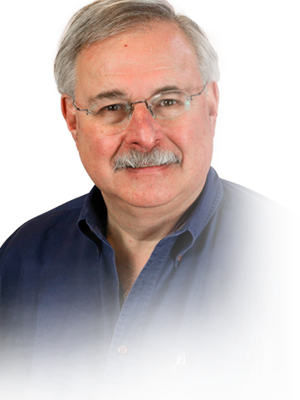
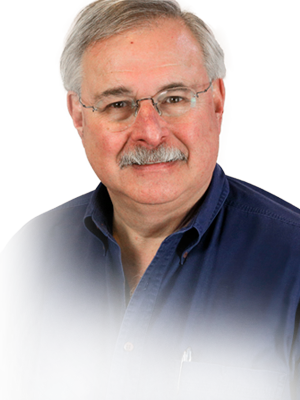
Mel Berger, MD, PhD
Mel Berger is a Senior Director, Medical Research Strategy at CSL and Adjunct Professor of Pediatrics and Pathology, Case Western Reserve University. He earned his undergraduate, medical and PhD (in Biochemistry) degrees at Case Western Reserve University in Cleveland. He completed his internship and residency in pediatrics at Boston ChildrenÔÇÖs Hospital. He did an allergy-clinical immunology fellowship at NIH, and is Board Certified in Pediatrics and Allergy-Immunology. He served as Assistant Chief of Allergy-Immunology at Walter Reed Army Medical Center and had an initial faculty appointment at the Uniformed Services University of Health Sciences.
In 1984, he returned to Cleveland and joined the faculty of Case Western Reserve as Chief of the Division of Allergy-Immunology at Rainbow, Babies and ChildrenÔÇÖs Hospital and he rose to Professor of Pediatrics, Pathology and General Medical Sciences (Oncology). In 2008, Dr. Berger joined CSL Behring, but he continues to hold a faculty appointment at Case. He served for more than 20 years in the US Army and Army Reserve, including commanding a hospital unit during the peace effort in former Yugoslavia, and retired from the Army as a Colonel.
Dr. Berger's research has focused on control of inflammatory responses and on antigen-antibody and complement interactions, particularly in primary immune deficiency diseases and cystic fibrosis. He has been a leader in research on the clinical use of immunoglobulins and played a key role in developing the use of portable pumps to give IgG subcutaneously. He has published more than 100 peer-reviewed papers on his research, as well as numerous chapters and review articles.
Dr. Berger is a Fellow of the American Academy of Allergy Asthma and Immunology, the American Pediatric Society, and the American Academy of Pediatrics. He has been elected to the American Society for Clinical Investigation and the Society for Pediatric Research, and has served as a Director of the American Board of Allergy and Immunology and on numerous FDA and NIH panels.
-
 8:25Consistency Over Time of Strength and Disability Measurements in Patients with CIDP on Stable IgG Therapy
8:25Consistency Over Time of Strength and Disability Measurements in Patients with CIDP on Stable IgG TherapyHear the results of a study to understand wear-off effects in CIDP patients during IVIg therapy.


Vera Bril, BSc, FRCPC, MD
Vera Bril is a Professor of Medicine (Neurology) at the University of Toronto, Director of Neurology at University Health Network and Mount Sinai Hospital and the Krembil Family Chair in Neurology. She has particular expertise in the diagnosis and management of patients with complex neuromuscular disorders. Her research interests have centered on the diagnosis and evidence-based treatment of myasthenia gravis, inflammatory polyneuropathies, and diabetic sensorimotor polyneuropathy. Her work has helped set the standards for electrophysiological investigations in the definition and evaluation of the progression of chronic polyneuropathies. Her research has helped establish the role of intravenous immunoglobulin in the treatment of myasthenia gravis and the Guillain-Barr├® Syndrome, and the long-term treatment of chronic inflammatory demyelinating polyneuropathy.
She has acted in an advisory capacity to Health Canada and the FDA. Dr Bril also serves as the Deputy Physician-in-Chief for Economic Affairs for the Department of Medicine at the University Health Network and Mount Sinai Hospital and Chair of the Economics committee. She is part of the Department of Medicine Executive Committee and helps administer this group of 300 physicians.
-
 5:24Overview and Treatment of Chronic Inflammatory Demyelinating Polyneuropathy (CIDP)
5:24Overview and Treatment of Chronic Inflammatory Demyelinating Polyneuropathy (CIDP)Learn more about the mechanism of action, symptoms, diagnosis, and treatment of CIDP.
-
 15:3120% Subcutaneous Immunoglobulin for Maintenance Treatment in Chronic Inflammatory Demyelinating Polyneuropathy (PATH): a Randomized, Double-blind, Placebo-controlled, Phase 3 TrialLearn about the PATH study results and SCIG (subcutaneous immunoglobulin) treatment in CIDP
15:3120% Subcutaneous Immunoglobulin for Maintenance Treatment in Chronic Inflammatory Demyelinating Polyneuropathy (PATH): a Randomized, Double-blind, Placebo-controlled, Phase 3 TrialLearn about the PATH study results and SCIG (subcutaneous immunoglobulin) treatment in CIDP -
 12:13Restabilization of chronic inflammatory demyelinating polyneuropathy patients with IVIG: restabilization phase of the PATH studyLearn about the Restabilization Phase of the PATH Trial with IVIG in CIDP patients
12:13Restabilization of chronic inflammatory demyelinating polyneuropathy patients with IVIG: restabilization phase of the PATH studyLearn about the Restabilization Phase of the PATH Trial with IVIG in CIDP patients


David R. Cornblath, MD
David R. Cornblath received his MD from Case Western Reserve University and completed his residency and fellowship at the Hospital of the University of Pennsylvania under Prof. A.K. Asbury. He is Professor of Neurology at Johns Hopkins University and Director of the Neurology EMG Laboratory at the Johns Hopkins Hospital. His clinical and research interests are peripheral neuropathies.
Prof. Cornblath has co-authored a book entitled Diagnosis and Management of Peripheral Nerve Disorders and written over 200 articles and chapters. He is Editor-in-Chief of the Journal of the Peripheral Nervous System, Secretary/ Treasurer of the Peripheral Nerve Society, a member of the Board of Directors of the GBS/CIDP Foundation International and the Foundation for Peripheral Neuropathy, and Chair of one of the Hopkins Institutional Review Boards.
-
 7:23Overview and Treatment of Guillain-Barr├® Syndrome (GBS)
7:23Overview and Treatment of Guillain-Barr├® Syndrome (GBS)Learn more about the features, symptoms, diagnosis, and treatment of GBS.


Peter Donofrio, MD
Peter D. Donofrio, M.D. is a Professor of Neurology at Vanderbilt University Medical Center. He is a graduate of The Ohio State University School of Medicine and pursued a residency in neurology and a neuromuscular fellowship at the University of Michigan. Dr. Donofrio is board certified in Neurology, Internal Medicine, EMG and Neuromuscular Disorders. He is Chief of the Neuromuscular Section and Director of the EMG lab at Vanderbilt.
Other duties include Directorship of the MDA Clinic and the ALS Clinic. He is a member of the Medical Advisory Committee of the GBS/CIDP International Foundation; Vanderbilt University Medical Center is a certified Center of Excellence for the GBS/CIDP International Foundation. Dr. Donofrio has a special interest in all types of peripheral neuropathies, particularly GBS and CIDP, but also cares for many patients with myasthenia gravis, ALS, and muscle disorders. He is the author of the textbook entitled The Textbook of Peripheral Neuropathy published in April 2012 by Demos Medical.
-
 25:18Incidence of GBS and CIDP Following Influenza Vaccination
25:18Incidence of GBS and CIDP Following Influenza VaccinationGain an understanding of the existing surveillance data, studies and facts associated with the influenza vaccine as it relates to GBS and CIDP.


Karissa Gable, MD
Dr. Karissa Gable is a Neuromuscular specialist at Duke University Medical Center in Durham, North Carolina. She is a graduate of the University of North Carolina at Chapel Hill School of Medicine and pursued a residency in Neurology at Northwestern University and a Neuromuscular fellowship at Harvard Medical School. Dr. Gable is board certified in Neurology, Electrodiagnostic Medicine and Neuromuscular Disorders.
Dr. Gable has a special interest in all types of peripheral neuropathies, particularly GBS and CIDP, but also cares for many patients with myasthenia gravis and muscle disorders. Other duties include Directorship of the Neuromuscular Fellowship Program at Duke University.
-
 09:29Fatigue in CIDPEngage in a presentation on the comparison between active and remission disease states in CIDP.
09:29Fatigue in CIDPEngage in a presentation on the comparison between active and remission disease states in CIDP.


Kenneth C. Gorson, M.D.
Kenneth C. Gorson, M.D. is a Professor of Neurology in the Department of Neurology at St. ElizabethÔÇÖs Medical Center, Tufts University School of Medicine, in Boston. Dr. Gorson has published over 90 original peer-reviewed research articles, book chapters, and reviews pertaining to Guillain-Barre┬┤ syndrome, chronic inflammatory demyelinating polyneuropathy (CIDP), paraprotein associated neuropathies, vasculitic neuropathy, and various other inflammatory and immune-mediated disorders of the peripheral nervous system. His clinical and research expertise extends to patients with neuropathies associated with diabetes, connective tissue disorders, and cancer, inherited peripheral neuropathies, and disorders of muscle, myasthenia gravis, and amyotrophic lateral sclerosis. Professor Gorson also has extensive expertise in the medical management of numerous chronic neuropathic and musculoskeletal pain disorders. He has been a principal investigator in several clinical research studies, including experimental treatment trials for CIDP, multifocal motor neuropathy, myasthenia gravis, diabetic neuropathy, painful neuropathies, and post-herpetic neuralgia. He has lectured widely to medical specialists and patient support groups on various topics in the field of neuromuscular diseases.
Dr. Gorson is the Chairman of the Global Medical Advisor Board for the GBS/CIDP Foundation international, the United States Principal Investigator and country coordinator for the International Guillain-Barre Outcome Study (IGOS) and also serves on the Steering Committee for IGOS, Secretary for the Inflammatory Neuropathy Consortium, serves on the editorial board for Muscle & Nerve, and is an active member of the American Academy of Neurology (AAN), American Association of Electrodiagnostic Medicine, and Peripheral Nerve Society, and has previously served on the sub-committee responsible for the selection of neuromuscular courses for the annual meeting of the Academy. He also served as a Councilor for the Neuromuscular Section for the AAN.
In his teaching capacity, Dr. Gorson has served as Director of the Tufts Neurology Residency Training Program and was responsible for resident candidate selection, and supervises the daily academic activities of the Neurology resident trainees. He is also an integral part of the teaching staff for the neurology and medical interns and residents at St. ElizabethÔÇÖs Medical Center and medical students from Tufts University School of Medicine.
-
 19:15GBS and Zika VirusUnderstand the latest information on the Zika Virus and its relationship to Guillain-Barre┬┤ syndrome
19:15GBS and Zika VirusUnderstand the latest information on the Zika Virus and its relationship to Guillain-Barre┬┤ syndrome


Thomas Harbo, MD, PhD
-
 16:21Wear-Off in IVIG and What it Means in Clinical PracticeLearn about wear-off effects in patients with CIDP, the tools available to monitor them, and the methods to combat them and tailor treatment to the patient.
16:21Wear-Off in IVIG and What it Means in Clinical PracticeLearn about wear-off effects in patients with CIDP, the tools available to monitor them, and the methods to combat them and tailor treatment to the patient. -
 15:18Guillain-Barre Syndrome (GBS): Typical and Atypical Clinical PresentationsLearn more about the importance of understanding typical and atypical presentations of GBS, including features of clinically distinct variants and subtypes, proper diagnosis, and initiation of appropriate treatment.
15:18Guillain-Barre Syndrome (GBS): Typical and Atypical Clinical PresentationsLearn more about the importance of understanding typical and atypical presentations of GBS, including features of clinically distinct variants and subtypes, proper diagnosis, and initiation of appropriate treatment.


Jonathan S. Katz, MD
Jonathan S. Katz, MD, is the Director, Forbes Norris MDA/ALS Research Center at the California Pacific Medical Center in San Francisco, California. He received his BA from The Johns Hopkins University and his medical degree from Tulane University School of Medicine. He subsequently completed his neurology training at the University of Washington and neuromuscular diseases at the University of Texas, Southwestern Medical Center.
Dr. Katz is board certified in in Psychiatry and Neurology and specializes in the management and treatment of neuromuscular diseases such as CIDP, GBS, ALS, myasthenia gravis and multifocal motor neuropathy. He also sits on the medical advisory board of the Guillain-Barre CIDP Foundation International, California State Myasthenia Gravis Association and Myasthenia Gravis Association of America. He has authored over 80 publications, written 7 text book chapters and has participated in more than 23 Investigator Initiated Studies over the past 10 years, and has been national PI in several ALS trials. Notably among his many contributions, Dr. Katz has been the first author of several pioneering clinical papers that have focused on novel presentations which have become part of the neurological nomenclature including distal acquired demyelinating sensory polyneuorpathy (DADS), isolated neck extensor myopathy (INEM), multifocal acquired motor axonopathy (MAMA), and brachial amyotrophic diplegia (BAD).
-
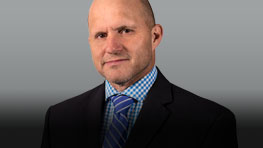 09:15Electrophysiologic Findings In Multifocal Motor NeuropathyExplore electrophysiologic findings of MMN in addition to the classical electrophysiological conduction block
09:15Electrophysiologic Findings In Multifocal Motor NeuropathyExplore electrophysiologic findings of MMN in addition to the classical electrophysiological conduction block -
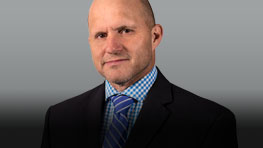 09:51Global Multifocal Motor Neuropathy Quality of Life Patient SurveyExamine a quality of life patient study that identifies needs in education and treatment for patients with MMN.
09:51Global Multifocal Motor Neuropathy Quality of Life Patient SurveyExamine a quality of life patient study that identifies needs in education and treatment for patients with MMN.


Hans D. Katzberg, MD, MSc, FRCP(C)
Dr. Hans Katzberg is a neuromuscular specialist and clinical investigator at the University Health Network / Toronto General Hospital and has been on faculty at the University of Toronto as Assistant Professor of Neurology. He obtained his undergraduate and medical degrees at the University of British Columbia and did his residency in neurology at the University of Toronto where he was chief resident from 2006-7. He later completed fellowships in neuromuscular medicine and neurophysiology (EMG) at Stanford University, where he also obtained a MasterÔÇÖs degree in clinical epidemiology.
He has been on staff at the Ellen and Martin Prosserman Center for Neuromuscular Diseases at TGH since 2010, where he runs neuromuscular and EMG clinics, is active in training of neurology and physiatry residents / fellows and conducts clinical research. He is cross-appointed to Sick Kids Hospital where he coordinates a transition clinic for young adults with neuromuscular conditions. In 2014 he took over as fellowship program director at the University of Toronto for the Division of Neurology. He is Associate Editor for the Canadian Journal of Neurological Science and co-chair for research in the Canadian Neuromuscular Disease Network. He has a research focus in outcome measures and clinical trials in immune mediated neuromuscular junction disorders such as myasthenia gravis and neuropathies such as CIDP.
-
 10:32SCIg in Multifocal Motor Neuropathy
10:32SCIg in Multifocal Motor NeuropathyHear the results of a trial to determine the feasibility of switching patients with multifocal motor neuropathy on intravenous to subcutaneous immunoglobulin.


Carol L. Koski, MD
-
 16:21Wear-Off in IVIG and What it Means in Clinical PracticeLearn about wear-off effects in patients with CIDP, the tools available to monitor them, and the methods to combat them and tailor treatment to the patient.
16:21Wear-Off in IVIG and What it Means in Clinical PracticeLearn about wear-off effects in patients with CIDP, the tools available to monitor them, and the methods to combat them and tailor treatment to the patient. -
 5:51IgG Levels and Wear Off Reflect Administration and OutcomeLearn more about how IgG levels and their wear off reflect treatment administration and outcomes in individual IVIG- or SCIG-treated patients with immunodeficiency and peripheral inflammatory neuropathy disorders.
5:51IgG Levels and Wear Off Reflect Administration and OutcomeLearn more about how IgG levels and their wear off reflect treatment administration and outcomes in individual IVIG- or SCIG-treated patients with immunodeficiency and peripheral inflammatory neuropathy disorders.


Richard A. Lewis, MD
Richard A. Lewis, MD is Professor of Neurology at Cedars-Sinai Medical Center in Los Angeles, California where he directs the EMG laboratory and co-directs the neuromuscular clinical program. He is Director of the GBS-CIDP Foundation Center of Excellence at Cedars-Sinai. Prior to his move to California in 2013, he was Associate Chair of Neurology at Wayne State University where he had been for 19 years.
He has been on the Board of Directors of the Peripheral Nerve Society, and on the Steering Committee of the Inflammatory Neuropathy Consortium. He is on the Medical Advisory Boards of the GBS-CIDP Foundation and the Myasthenia Gravis Foundation. He has been involved as an investigator, steering committee member and DSMB member in clinical trials in a number of immune mediated disorders including CIDP, myasthenia gravis and multifocal motor neuropathy.
-
 13:53Pathogenesis and Mechanism of Action of Inflammatory Neuropathies
13:53Pathogenesis and Mechanism of Action of Inflammatory NeuropathiesFind out what pathogenic processes are involved in acute and chronic inflammatory neuropathies, including GBS, CIDP, and MMN.


Michael Lunn, PhD
National Hospital for Neurology and Neurosurgery, Queen Square, London
Dr Michael Lunn is a Consultant Neurologist, Clinical Lead in Neuroimmunology and Honorary Senior Lecturer at the National Hospital for Neurology and Neurosurgery. He trained in medicine at Emmanuel College, Cambridge and the Charing Cross and Westminster Hospitals Medical School. He worked at the Royal Brompton and Hammersmith Hospitals before receiving his specialist neurology training in the UK at GuyÔÇÖs, KingÔÇÖs, St ThomasÔÇÖ and Charing Cross Hospitals, Hurstwood Park Neurosciences Centre and Queen Square, and at the Johns Hopkins Hospital in Baltimore, USA. He was appointed to a Consultant position at NHNN in 2005.
-
 14:01Dosing Schedules for IVIg: The Use of an Algorithm as a Suggestion for Personalized Dosing
14:01Dosing Schedules for IVIg: The Use of an Algorithm as a Suggestion for Personalized DosingLearn how an algorithm could be used to personalize dosing schedules for IVIg.
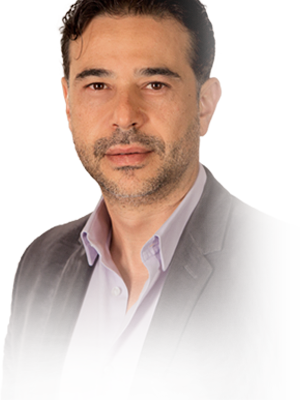

Nabil Moumane, MD
Nabil Moumane is the Director of Medical Affairs and Pharmacology at CSL Behring. He completed his medical training at the University of Casablanca in Morocco. He also has a Master of Biomedical and Physical Engineering of Health in the University of Saints-Pères, Paris, and Biostatistics for the Health and Biological Sciences in Pierre at Marie Curie University in Paris. Before joining the pharmaceutical industry he spent 3 years in Emergency department. He gained over 10 years of industry experience in Medical Affairs departments first in central nervous system and psychiatry and then, from 2010 he joined CSL Behring as a medical manager in immunology.
-
 3:00Subcutaneous Immunoglobulins (SCIg) in Responders to Intravenous Immunoglobulins (IVIg) with Chronic Inflammatory Demyelinating Polyradiculoneuropathy (CIDP) and Multifocal Motor Neuropathy (MMN)
3:00Subcutaneous Immunoglobulins (SCIg) in Responders to Intravenous Immunoglobulins (IVIg) with Chronic Inflammatory Demyelinating Polyradiculoneuropathy (CIDP) and Multifocal Motor Neuropathy (MMN)Hear why SCIg may be a better option for long-term treatment of patients on Immunoglobulin therapy with difficult venous access.


Van den Bergh, MD PhD
Peter Van den Bergh is Professor of Neurology at the Université Catholique de Louvain and Director of the Neuromuscular Centre of Reference of the Cliniques Universitaires Saint-Luc, Brussels, Belgium. He is the lead author of the 2021 EAN/PNS Guideline on diagnosis and treatment of CIDP.
-
 12:15European Academy of Neurology (EAN) and Peripheral Nerve Society (PNS) Guideline on diagnosis and treatment of chronic inflammatory demyelinating polyradiculoneuropathy: Report of a joint Task Force—Second RevisionWatch Dr. Peter Van den Bergh, lead author, take you through the highlights of the guideline.
12:15European Academy of Neurology (EAN) and Peripheral Nerve Society (PNS) Guideline on diagnosis and treatment of chronic inflammatory demyelinating polyradiculoneuropathy: Report of a joint Task Force—Second RevisionWatch Dr. Peter Van den Bergh, lead author, take you through the highlights of the guideline.


Claudia Sommer, MD
Claudia Sommer is a Professor of Neurology at the University of W├╝rzburg, Germany. She received training in psychiatry, neuropathology, experimental anesthesia, and neurology. At the University of W├╝rzburg she serves as a consultant in neurology, organizes an outpatient clinic for patients with pain, and leads the Peripheral Nerve Laboratory. Professor SommerÔÇÖs research interests include: the role of cytokines in the pathophysiology of pain, improvement and standardization of diagnostics in neuropathies, and the pathophysiology of antibody-mediated diseases. She has written more than 150 original research papers and more than 100 reviews and book chapters, and has edited several books.
Professor Sommer is active in the development of national and international guidelines on treatment of peripheral neuropathies, nerve and skin biopsies, and treatment of fibromyalgia and neuropathic and facial pain. She is a reviewer for scientific journals and the German Research Foundation (DFG), and serves on the editorial boards of several scientific journals.
-
 9:35Clinical Studies for the Treatment of CIDP with Immunoglobulin
9:35Clinical Studies for the Treatment of CIDP with ImmunoglobulinDiscover the results of two recent clinical studies of IVIg treatments for CIDP.